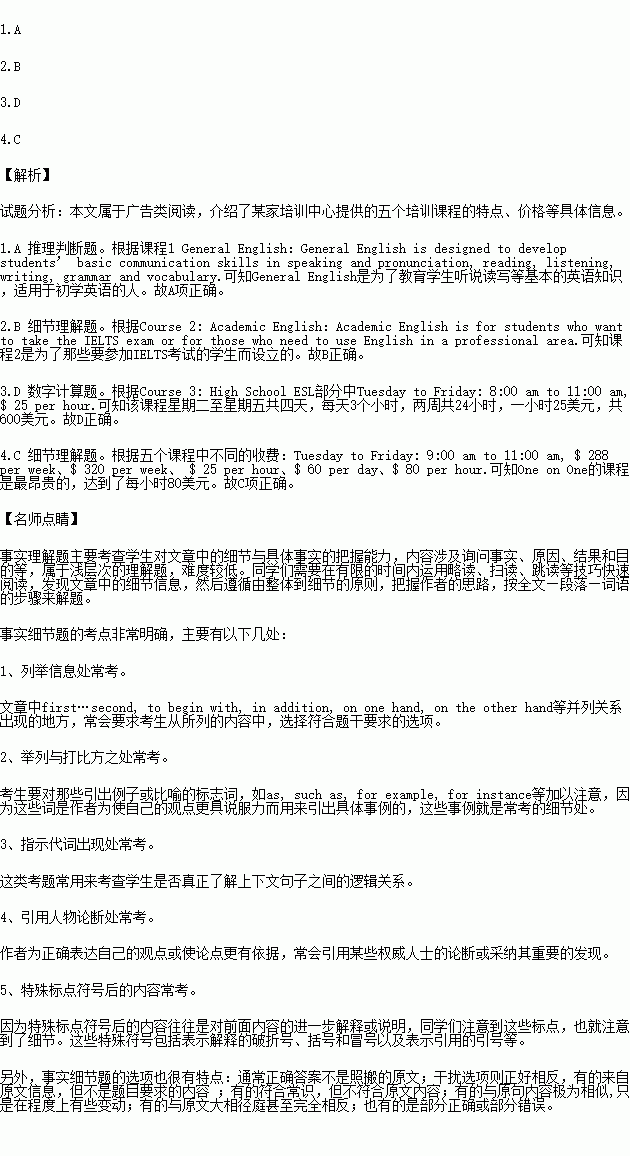题目内容
We offer five kinds of courses. Each course has been designed to help students according to their needs.
Course 1: General English
General English is designed to develop students’ basic communication skills in speaking and pronunciation, reading, listening, writing, grammar and vocabulary. Tuesday to Friday: 9:00 am to 11:00 am, $ 288 per week.
Course 2: Academic English
Academic English is for students who want to take the IELTS exam or for those who need to use English in a professional area. Monday to Friday: 4:00 pm to 5:00 pm, $ 320 per week.
Course 3: High School ESL
Why not make the most of your time studying in Australia with the help from TIES? We have High School ESL classes each week specifically designed for international students. Tuesday to Friday: 8:00 am to 11:00 am, $ 25 per hour.
Course 4: Night Classes
Do you want to improve your English and get the best possible results in your GRE test? We have two night classes each week designed to meet your needs. Tuesday and Thursday evenings: 8:30 pm to 10:30 pm, $ 60 per day.
Course 5: One on One
If you are interested in some One on One lessons with TIES teachers, we can design a course to meet your needs. One on One lessons can improve your English language skills more quickly and help students who want to take TOEFL. Tuesday to Friday: 2:00 pm to 5:00 pm, $ 80 per hour.
1.If you are an English beginner, you’d better choose .
A.General English B.High School ESL
C.Night Classes D.Academic English
2.Which course would be helpful for students who want to take the IELTS exam?
A.Course 1. B.Course 2.
C.Course 3. D.Course 4.
3.How much will you pay if you spend two weeks taking the High School ESL course?
A.$ 200. B.$ 300.
C.$ 500. D.$ 600.
4.What can we learn from One on One according to the passage?
A.Its lessons are given in the morning.
B.It’s especially designed for English beginners.
C.It’s more expensive than the other courses.
D.Its lessons are designed to only improve writing skills.
 开心蛙状元测试卷系列答案
开心蛙状元测试卷系列答案书面表达
众所周知,地震是一种可怕的自然灾害,近期日本和厄瓜多尔相继发生7级以上大地震,造成了巨大的人员伤亡和财产损失。那么当地震来临我们需要怎样去做呢?
在教室时 | 藏在课桌下面等待老师指示 |
在家时 | 藏在起居室或厨房的桌子下。不要去窗户旁边也不要去阳台(balcony) |
在街上时 | 不要站在建筑物,栅栏(fence)或墙边,也不要站在树下,要赶快到安全的露天的空地去 |
请根据以上信息写一篇文章,题目已给出。
注意:词数100左右。
What to Do During an Earthquake
As we all know, an earthquake is a kind of terrible disaster. So what should we do when an earthquake comes?

